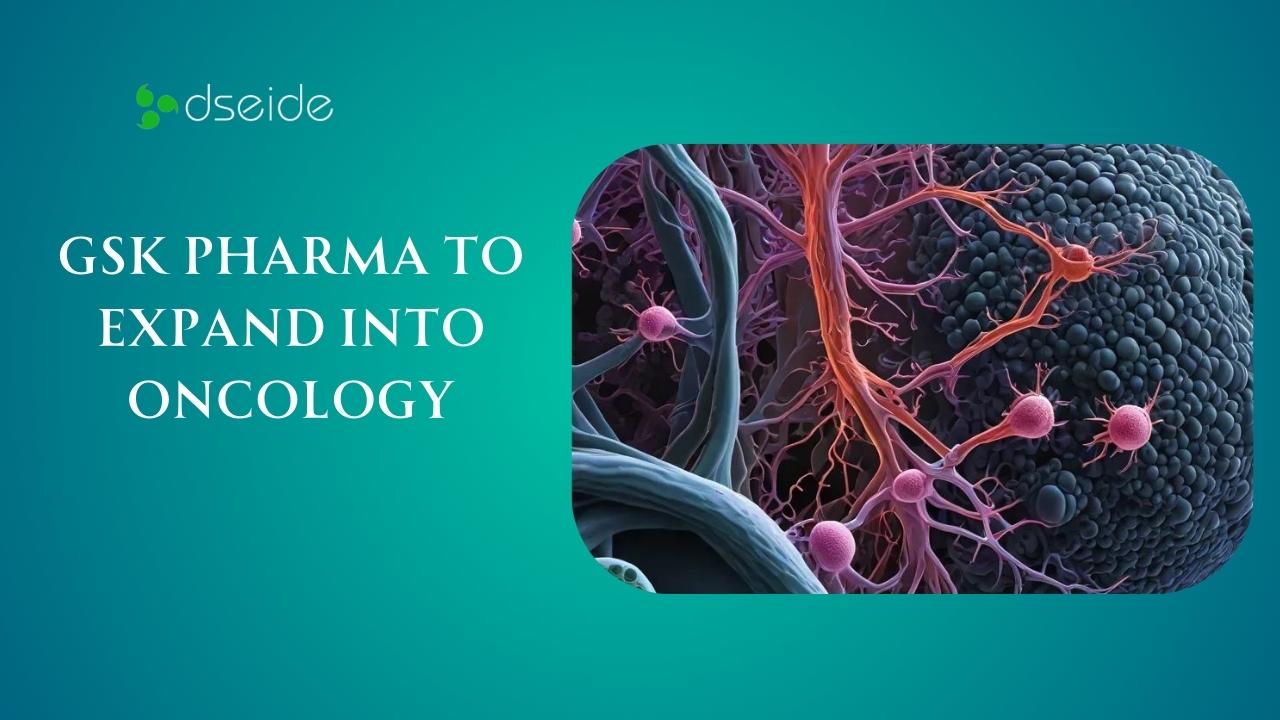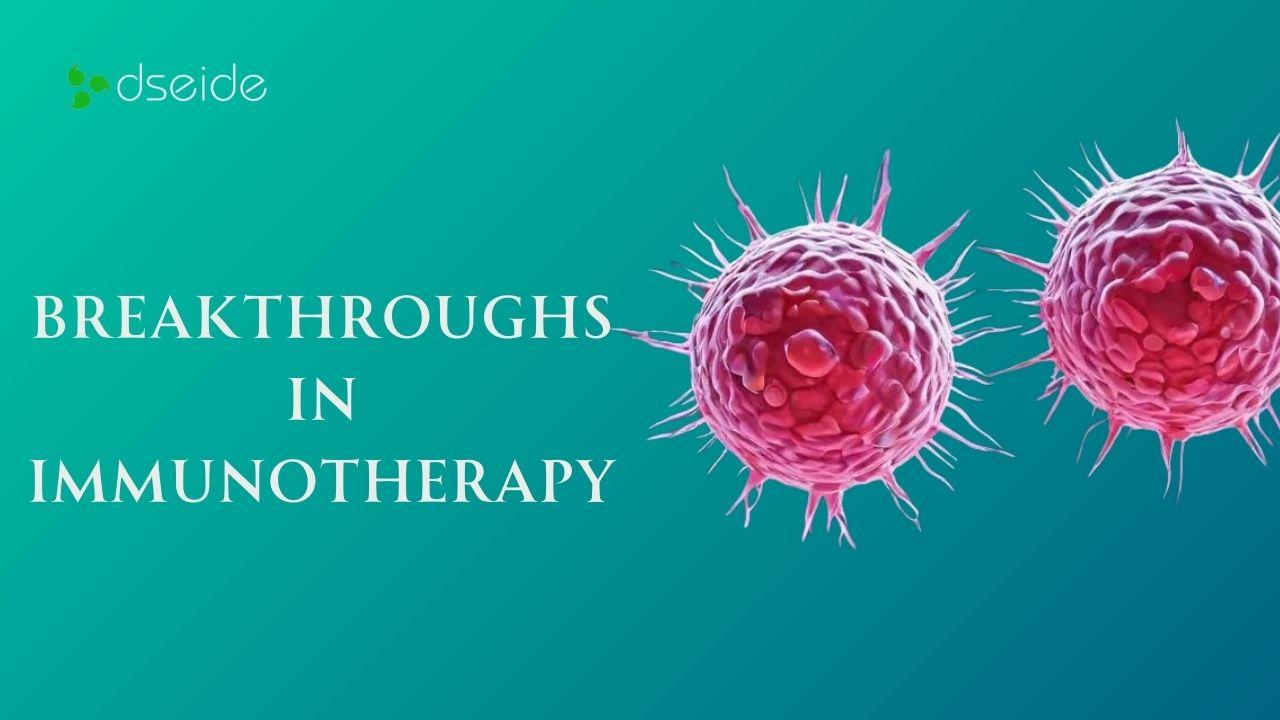Oncology Network is a specialized community for oncologists and cancer care professionals. Our platform is designed to facilitate the exchange of cutting-edge research, treatment strategies, and collaborative efforts in the fight against cancer. Connect with peers and contribute to advancing oncology care worldwide.
- Public Group
- 5 Posts
- 4 Photos
- 0 Videos
- oncology
Recent Updates
- GSK Pharma Expands into Oncology and Focuses on Adult Vaccines in India
GlaxoSmithKline (GSK) Pharma is making significant strides in the Indian healthcare market, focusing on two key areas: oncology and adult vaccines. With India's growing population and rising life expectancy, GSK is positioning itself as a leader in preventive healthcare while expanding its specialty portfolio into oncology.
Focus on Adult Vaccines
GSK has been working to build a robust ecosystem for adult immunization in India, recognizing the increasing importance of preventive healthcare. One of its major recent launches was Shingrix, a vaccine for shingles, which has been well-received by healthcare practitioners. GSK is also preparing to introduce new vaccines, such as the Arexvy vaccine for respiratory syncytial virus (RSV), with clinical trials set to start soon. This push reflects a shift from the traditional focus on childhood immunization to a more comprehensive approach for all age groups.
Oncology Expansion
In a significant move, GSK is also entering the oncology market in India. It has introduced two key therapies: Zejula (niraparib), for the maintenance treatment of ovarian cancer, and Jemperli (dostarlimab), a treatment for endometrial cancer. The company sees oncology as a high-growth area and is moving rapidly to commercialize these treatments in the Indian market.
This dual focus on vaccines and oncology is part of GSK’s broader strategy to align with India’s evolving healthcare needs, particularly in light of government initiatives promoting preventive healthcare and improving the quality of care
These expansions underline GSK's commitment to innovation and its evolving role in India's healthcare ecosystem.
source: economictimes.indiatimes
#oncology #dseideGSK Pharma Expands into Oncology and Focuses on Adult Vaccines in India GlaxoSmithKline (GSK) Pharma is making significant strides in the Indian healthcare market, focusing on two key areas: oncology and adult vaccines. With India's growing population and rising life expectancy, GSK is positioning itself as a leader in preventive healthcare while expanding its specialty portfolio into oncology. Focus on Adult Vaccines GSK has been working to build a robust ecosystem for adult immunization in India, recognizing the increasing importance of preventive healthcare. One of its major recent launches was Shingrix, a vaccine for shingles, which has been well-received by healthcare practitioners. GSK is also preparing to introduce new vaccines, such as the Arexvy vaccine for respiratory syncytial virus (RSV), with clinical trials set to start soon. This push reflects a shift from the traditional focus on childhood immunization to a more comprehensive approach for all age groups. Oncology Expansion In a significant move, GSK is also entering the oncology market in India. It has introduced two key therapies: Zejula (niraparib), for the maintenance treatment of ovarian cancer, and Jemperli (dostarlimab), a treatment for endometrial cancer. The company sees oncology as a high-growth area and is moving rapidly to commercialize these treatments in the Indian market. This dual focus on vaccines and oncology is part of GSK’s broader strategy to align with India’s evolving healthcare needs, particularly in light of government initiatives promoting preventive healthcare and improving the quality of care These expansions underline GSK's commitment to innovation and its evolving role in India's healthcare ecosystem. source: economictimes.indiatimes #oncology #dseide0 Comments 0 Shares 404 Views
 11
11 Please log in to like, share and comment!
Please log in to like, share and comment! - Aurigene Oncology Reports Positive Outcomes from Phase 1 Trial of CAR-T Cell Therapy in India
October 8, 2024
Aurigene Oncology Limited, a subsidiary of Dr. Reddy’s Laboratories, has reported promising results from its Phase 1 trial of Ribrecabtagene autoleucel (DRL-1801), a novel autologous BCMA-directed CAR-T cell therapy. This marks a significant milestone, as it is the first clinical trial of its kind in India, targeting patients with relapsed/refractory multiple myeloma.
Key Highlights of the Trial
The trial, known as the SWASTH study, included eight patients who had previously undergone a median of 5.5 lines of treatment, with most also having undergone a transplant. Despite these treatments, their disease had progressed, making them ideal candidates for the new CAR-T therapy.
The results were particularly promising:
100% of patients showed a clinical response.
62.5% of patients (5 out of 8) achieved a stringent complete response, indicating a high level of disease control.
Importantly, there were no high-grade instances of Cytokine Release Syndrome (CRS) or neurotoxicity, two common side effects associated with CAR-T cell therapies.
These early results suggest that Ribrecabtagene autoleucel may provide a transformative treatment option for patients in India with relapsed/refractory myeloma, where options are currently limited.
A Transformative Step for Indian Oncology
Dr. Murali Ramachandra, CEO of Aurigene Oncology, expressed excitement over the results, stating that this therapy could be revolutionary for Indian myeloma patients. The success of this trial highlights India’s growing capacity for innovative cancer treatments.
Ribrecabtagene autoleucel works by targeting the BCMA (B-cell maturation antigen), which is commonly expressed on the surface of myeloma cells. This therapy utilizes a humanized single-domain antibody as its antigen-binding domain, combined with a lentivirus vector. The CAR-T cells for the trial were produced at Aurigene’s CAR-T GMP manufacturing facility in Bangalore.
What’s Next?
Following the positive outcomes of Phase 1, India’s Drugs Controller General (DCGI) has approved the commencement of Phase 2 of the trial. This progression brings hope that this novel treatment could soon become an integral part of cancer care in India.
The data from this trial was presented at the 21st Annual Meeting of the International Myeloma Society in Rio de Janeiro, further highlighting its global importance in advancing multiple myeloma therapies.
A New Era for CAR-T Therapy in India
CAR-T cell therapy has gained traction globally due to its ability to offer long-term remission for certain cancers. However, India’s access to such advanced therapies has been limited, largely due to costs and infrastructure challenges. The success of this trial could help overcome these barriers and improve accessibility to cutting-edge treatments for Indian patients.
Aurigene Oncology’s breakthrough in CAR-T therapy showcases India's growing presence in the global biotech landscape and underscores the importance of continued innovation in oncology.
As the Phase 2 trial progresses, stakeholders in India’s healthcare system will be keenly watching its results, hoping it opens doors for more advanced treatments to be developed and implemented locally.
Source:- financialexpress
Aurigene Oncology Reports Positive Outcomes from Phase 1 Trial of CAR-T Cell Therapy in India October 8, 2024 Aurigene Oncology Limited, a subsidiary of Dr. Reddy’s Laboratories, has reported promising results from its Phase 1 trial of Ribrecabtagene autoleucel (DRL-1801), a novel autologous BCMA-directed CAR-T cell therapy. This marks a significant milestone, as it is the first clinical trial of its kind in India, targeting patients with relapsed/refractory multiple myeloma. Key Highlights of the Trial The trial, known as the SWASTH study, included eight patients who had previously undergone a median of 5.5 lines of treatment, with most also having undergone a transplant. Despite these treatments, their disease had progressed, making them ideal candidates for the new CAR-T therapy. The results were particularly promising: 100% of patients showed a clinical response. 62.5% of patients (5 out of 8) achieved a stringent complete response, indicating a high level of disease control. Importantly, there were no high-grade instances of Cytokine Release Syndrome (CRS) or neurotoxicity, two common side effects associated with CAR-T cell therapies. These early results suggest that Ribrecabtagene autoleucel may provide a transformative treatment option for patients in India with relapsed/refractory myeloma, where options are currently limited. A Transformative Step for Indian Oncology Dr. Murali Ramachandra, CEO of Aurigene Oncology, expressed excitement over the results, stating that this therapy could be revolutionary for Indian myeloma patients. The success of this trial highlights India’s growing capacity for innovative cancer treatments. Ribrecabtagene autoleucel works by targeting the BCMA (B-cell maturation antigen), which is commonly expressed on the surface of myeloma cells. This therapy utilizes a humanized single-domain antibody as its antigen-binding domain, combined with a lentivirus vector. The CAR-T cells for the trial were produced at Aurigene’s CAR-T GMP manufacturing facility in Bangalore. What’s Next? Following the positive outcomes of Phase 1, India’s Drugs Controller General (DCGI) has approved the commencement of Phase 2 of the trial. This progression brings hope that this novel treatment could soon become an integral part of cancer care in India. The data from this trial was presented at the 21st Annual Meeting of the International Myeloma Society in Rio de Janeiro, further highlighting its global importance in advancing multiple myeloma therapies. A New Era for CAR-T Therapy in India CAR-T cell therapy has gained traction globally due to its ability to offer long-term remission for certain cancers. However, India’s access to such advanced therapies has been limited, largely due to costs and infrastructure challenges. The success of this trial could help overcome these barriers and improve accessibility to cutting-edge treatments for Indian patients. Aurigene Oncology’s breakthrough in CAR-T therapy showcases India's growing presence in the global biotech landscape and underscores the importance of continued innovation in oncology. As the Phase 2 trial progresses, stakeholders in India’s healthcare system will be keenly watching its results, hoping it opens doors for more advanced treatments to be developed and implemented locally. Source:- financialexpress0 Comments 0 Shares 458 Views
 9
9
- Breakthroughs in Immunotherapy Immunotherapy continues to transform cancer treatment, with new therapies gaining approval and showing promise in clinical trials. One notable advancement is the development of CAR T-cell therapy, which has been expanded to treat various types of cancers, including solid tumors. Researchers are exploring ways to enhance the efficacy of CAR T-cell treatments by modifying T-cells to target specific cancer markers more effectively. This personalized approach aims to improve outcomes for patients with previously hard-to-treat cancers.
Early Detection Technologies Advancements in early detection technologies are playing a crucial role in improving cancer outcomes. Liquid biopsies, which analyze circulating tumor DNA in the blood, are becoming more sophisticated and are being used for early detection of various cancers, including lung, breast, and colorectal cancers. These non-invasive tests can help identify cancer at earlier stages, potentially leading to more effective treatments and better survival rates.
Targeted Therapies for Precision Medicine Targeted therapies are becoming increasingly prominent in oncology, as researchers identify specific genetic mutations associated with various cancers. New drugs designed to target these mutations are being developed and approved, leading to more personalized treatment plans. For instance, therapies targeting EGFR and ALK mutations in lung cancer are showing promising results, allowing for more effective management of the disease based on a patient’s genetic profile.
Advances in Radiation Therapy Recent advancements in radiation therapy techniques, such as stereotactic body radiation therapy (SBRT) and proton therapy, are improving treatment precision and reducing side effects. These innovative approaches allow for higher doses of radiation to be delivered directly to tumors while sparing surrounding healthy tissue. This is particularly beneficial for patients with tumors located near critical organs or structures.
Artificial Intelligence in Oncology Artificial intelligence (AI) is making significant inroads in oncology, with applications in diagnostics, treatment planning, and patient monitoring. AI algorithms are being developed to analyze imaging studies and pathology slides to identify cancerous cells more accurately and quickly than traditional methods. These technologies are helping pathologists and oncologists make more informed decisions and personalize treatment strategies.
Addressing Health Disparities in Cancer Care There is a growing focus on addressing health disparities in cancer care, particularly among underserved populations. Initiatives are being implemented to improve access to screening, treatment, and supportive services for marginalized groups. Community outreach programs aim to educate and engage individuals about cancer prevention and early detection, ultimately working towards reducing disparities in cancer outcomes.
Enhancements in Supportive Care As the focus on holistic cancer care increases, advancements in supportive care are also emerging. Research into managing treatment-related side effects, such as pain, nausea, and fatigue, is becoming a priority. Integrative approaches, including nutrition, physical therapy, and mental health support, are being incorporated into treatment plans to improve overall patient well-being and quality of life during and after cancer treatment.
These advancements reflect the dynamic nature of oncology, highlighting ongoing efforts to improve cancer diagnosis, treatment, and patient outcomes through innovation and research.Breakthroughs in Immunotherapy Immunotherapy continues to transform cancer treatment, with new therapies gaining approval and showing promise in clinical trials. One notable advancement is the development of CAR T-cell therapy, which has been expanded to treat various types of cancers, including solid tumors. Researchers are exploring ways to enhance the efficacy of CAR T-cell treatments by modifying T-cells to target specific cancer markers more effectively. This personalized approach aims to improve outcomes for patients with previously hard-to-treat cancers. Early Detection Technologies Advancements in early detection technologies are playing a crucial role in improving cancer outcomes. Liquid biopsies, which analyze circulating tumor DNA in the blood, are becoming more sophisticated and are being used for early detection of various cancers, including lung, breast, and colorectal cancers. These non-invasive tests can help identify cancer at earlier stages, potentially leading to more effective treatments and better survival rates. Targeted Therapies for Precision Medicine Targeted therapies are becoming increasingly prominent in oncology, as researchers identify specific genetic mutations associated with various cancers. New drugs designed to target these mutations are being developed and approved, leading to more personalized treatment plans. For instance, therapies targeting EGFR and ALK mutations in lung cancer are showing promising results, allowing for more effective management of the disease based on a patient’s genetic profile. Advances in Radiation Therapy Recent advancements in radiation therapy techniques, such as stereotactic body radiation therapy (SBRT) and proton therapy, are improving treatment precision and reducing side effects. These innovative approaches allow for higher doses of radiation to be delivered directly to tumors while sparing surrounding healthy tissue. This is particularly beneficial for patients with tumors located near critical organs or structures. Artificial Intelligence in Oncology Artificial intelligence (AI) is making significant inroads in oncology, with applications in diagnostics, treatment planning, and patient monitoring. AI algorithms are being developed to analyze imaging studies and pathology slides to identify cancerous cells more accurately and quickly than traditional methods. These technologies are helping pathologists and oncologists make more informed decisions and personalize treatment strategies. Addressing Health Disparities in Cancer Care There is a growing focus on addressing health disparities in cancer care, particularly among underserved populations. Initiatives are being implemented to improve access to screening, treatment, and supportive services for marginalized groups. Community outreach programs aim to educate and engage individuals about cancer prevention and early detection, ultimately working towards reducing disparities in cancer outcomes. Enhancements in Supportive Care As the focus on holistic cancer care increases, advancements in supportive care are also emerging. Research into managing treatment-related side effects, such as pain, nausea, and fatigue, is becoming a priority. Integrative approaches, including nutrition, physical therapy, and mental health support, are being incorporated into treatment plans to improve overall patient well-being and quality of life during and after cancer treatment. These advancements reflect the dynamic nature of oncology, highlighting ongoing efforts to improve cancer diagnosis, treatment, and patient outcomes through innovation and research.0 Comments 0 Shares 763 Views
 14
14
-
More Stories






